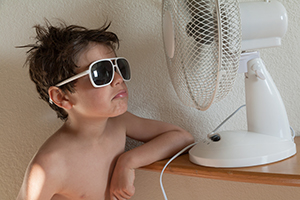
Posting Date: July 29, 2016
Posted by: Robert Herd, Hollywood, FL Office Manager
If your central air conditioning stops running – or if you notice it isn’t working as well as it once did – it’s probably time for a repair.
Before you contact us, check for these common problems, which can save time and help us diagnose the problem before we come to fix it.
No power
- Check fuses and circuit breakers – An overworked air conditioner can easily trip a circuit breaker or blow a fuse. Wait a few minutes after the unit turns off, then reset the breakers.
- Check your thermostat – Verify that it is set for the right temperature and settings (set to “cool” or “fan”) for regular operation.
Poor Operation
- Look for dirt and debris in filters and coils – Dirt can cause a compressor or fan to fail prematurely. Keep air intakes clear to ensure adequate airflow.
- Make sure all windows and doors are closed – if your A/C is overworking, it could lead to inefficiency – and eventually costly repairs.
- Check for signs of improper maintenance – Low airflow from vents and higher than usual energy bills can be a sign that your equipment isn’t being properly maintained. Equipment can lose 5-10 percent efficiency or more every cooling season without routine maintenance. Duct leaks can also account for added costs to cool and heat your home.
- Make sure your A/C unit is matched to the cooling load of your home – If you’ve built an addition to your home and haven’t upgraded your air conditioner, it may have to work too hard to cool your space, which will eventually lead to problems.
- Check for refrigerant leaks – Telltale signs for a refrigerant leak are warm air coming from your A/C vents and/or ice forming on your outdoor compressor unit. If your refrigerant is low, it’s probably due to a leak, and you’ll need a professional service.
Still having A/C problems? Contact Broward for prompt, expert service – or a replacement air conditioner, if you need it.
